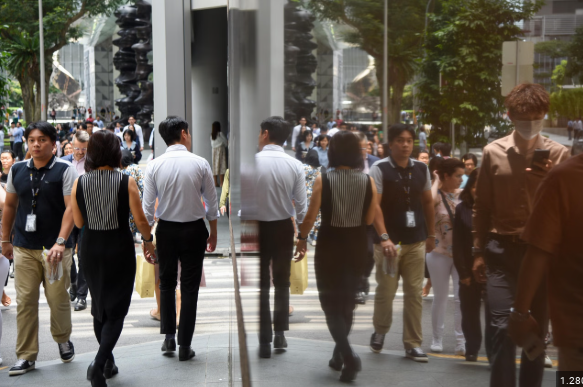New qualifying salaries take effect in 2025, with limited cost impact on most firms
Singapore’s Employment Pass (EP) qualifying salary will increase from S$5,000 to S$5,600 for new applicants starting January 1, 2025, and for renewals from January 1, 2026. In the financial services sector, where wage norms are higher, the threshold will rise from S$5,500 to S$6,200. Despite these changes, businesses are not expecting major cost impacts. Many firms either hire few EP holders or already offer salaries above the new benchmarks.
The adjustment aligns with market trends, ensuring that EP holders remain highly skilled professionals. Salaries will continue to rise with age, reaching up to S$10,700 for professionals in their mid-40s and up to S$11,800 in the financial sector. The government emphasizes that these increases do not set new market rates but reflect current wage norms to maintain competitiveness while protecting local employment opportunities.
For small and medium enterprises (SMEs), the impact is expected to be minimal since most do not employ EP holders. Companies that do rely on foreign professionals typically hire on a specialized and targeted basis, meaning they are already paying competitive salaries. Larger firms, particularly in technology and financial services, are also unlikely to face significant disruptions since their salary structures already exceed the new minimums. Additionally, businesses have a transition period extending to 2028, allowing ample time to adjust their hiring strategies.
Meanwhile, the marine and offshore engineering (M&OE) sector faces additional workforce constraints. Foreign worker levies will increase, with Basic Skilled (R2) Work Permit holders now required to pay S$500, up from S$400, while Higher Skilled (R1) Work Permit holders will see an increase from S$300 to S$350. Moreover, the sector’s Dependency Ratio Ceiling (DRC) will be tightened, requiring companies to have at least one local employee for every three Work Permit or S Pass holders. As a result, around half of the firms in the industry will need to restructure their workforce by hiring more locals or reducing reliance on foreign workers.
To mitigate the impact, many companies in the sector are already investing in automation, technology, and workforce upskilling. While these measures increase short-term costs, they are seen as necessary for long-term sustainability and competitiveness. Industry leaders recognize that workforce transformation is essential, and some firms are considering expanding operations to regions with more flexible manpower policies.
The Singapore National Employers Federation (SNEF) acknowledges the need for these changes but emphasizes the importance of skills-transfer initiatives to reduce overreliance on foreign labor. Although businesses will face higher costs, the shift is expected to encourage productivity improvements, workforce development, and strategic global expansion.








